 What Are The Signs That I Need Drain Cleaning Services
What Are The Signs That I Need Drain Cleaning Services
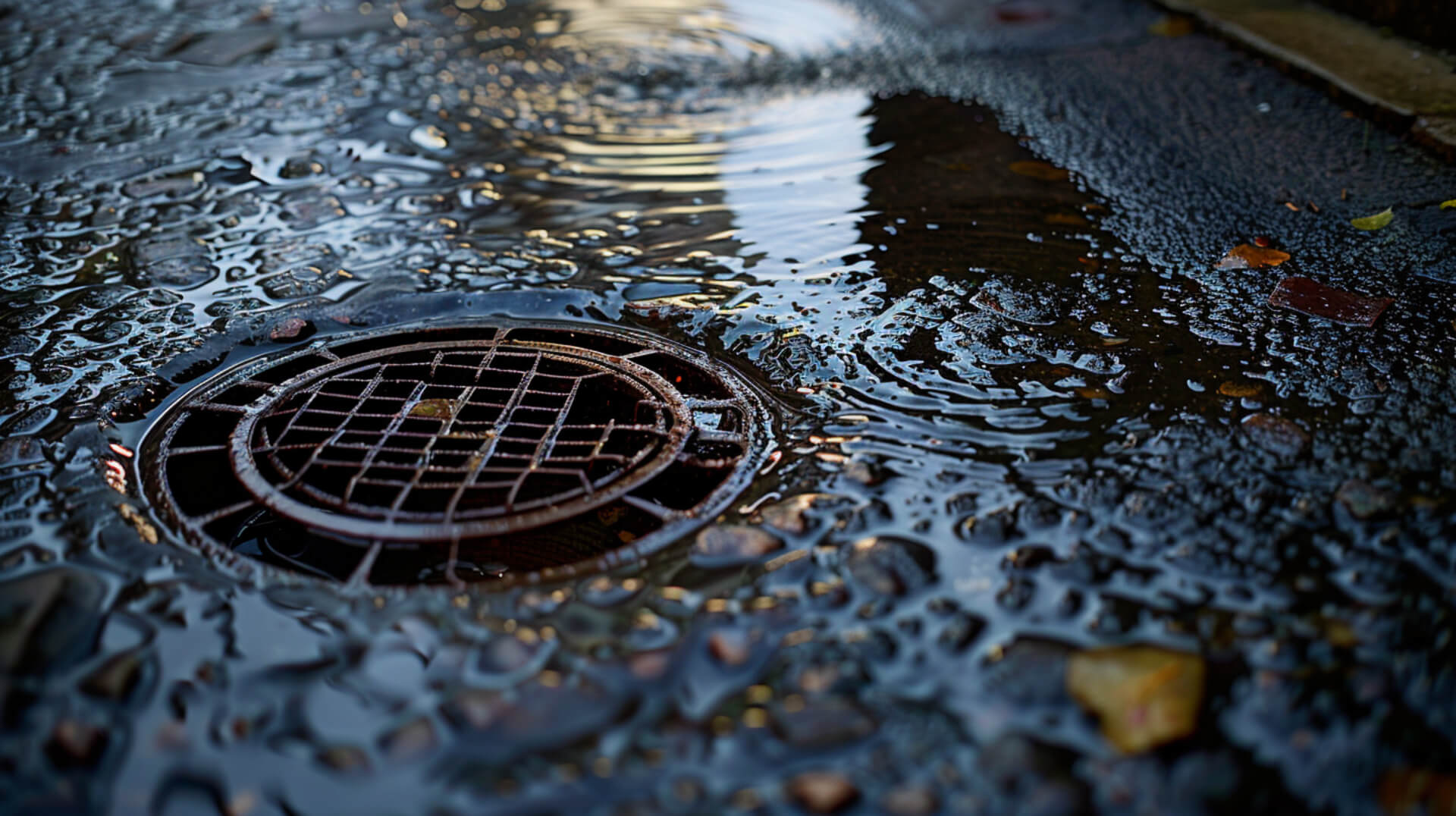
Regular maintenance is the cornerstone of a functional drainage system. It ensures the structural health of your property and safeguards against potential hygiene issues. Neglecting this critical aspect can lead to a cascade of problems, from minor inconveniences to severe health and safety hazards.
The Importance of Regular Drain Maintenance
Drainage systems are often out of sight, yet their role in maintaining a clean and safe environment is paramount. Regular cleaning prevents the accumulation of debris that can cause blockages, leading to costly damages. It’s not just about reactive measures; proactive maintenance is key to avoiding disruptions in your daily life or business operations.
Drainage Systems and Environmental Safety
Your drainage system plays a vital role in environmental conservation. Proper waste disposal and chemical management are essential to prevent contamination of water sources and soil, which can have far-reaching impacts on local ecosystems.
How This Guide Benefits You
For property owners, business owners, and facility managers, understanding the signs of drainage issues is crucial. This guide provides you with the knowledge to identify early warning signs, understand the implications of neglected drains, and make informed decisions on maintenance and professional cleaning services. With this information, you can ensure the longevity of your drainage system and the safety of your environment.
Recognising Early Signs of Drainage Issues
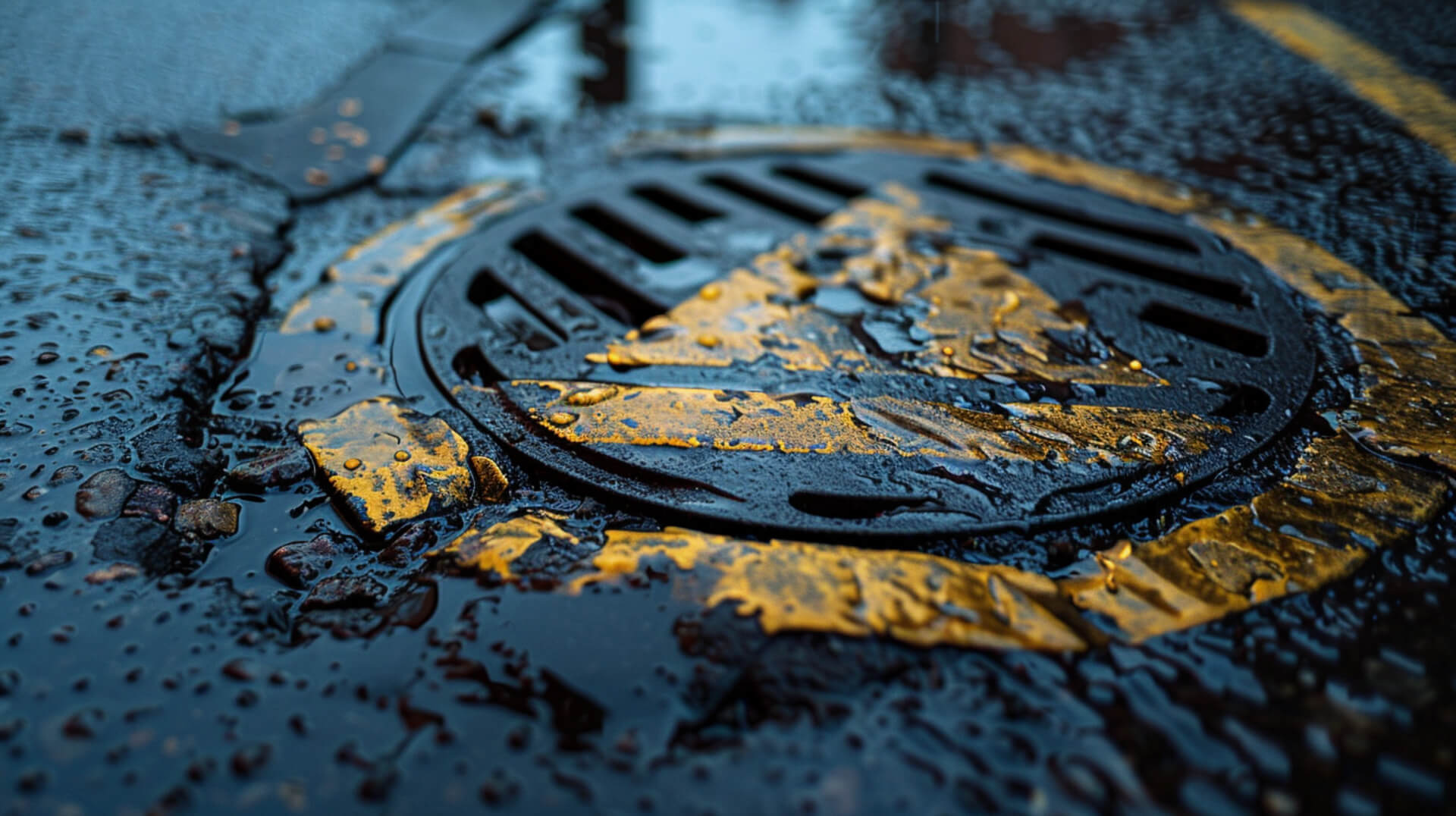
Identifying the early signs of drainage problems is essential for maintaining the structural health of your property and ensuring a hygienic environment. Promptly addressing these signs can prevent more severe issues and costly repairs.
Initial Indicators of a Clogged Drain
The first signs of a clogged drain are often the most apparent. You may notice water draining more slowly than usual, indicating a potential blockage. If water pools in sinks, showers, or basements, this is a clear signal that your drainage system is not functioning correctly.
Slow Drainage as a Signal of Deeper Issues
Slow drainage can be symptomatic of more significant problems within your plumbing system. It may suggest an accumulation of substances like grease, soap, or hair deep within the pipes. If not addressed, these blockages can lead to more extensive damage.
Frequent Clogs: More Than an Inconvenience
Regular occurrences of clogs in your drains are more than a mere annoyance; they can be indicative of systemic issues within your plumbing. Frequent clogs may point to persistent obstructions or even structural problems with your pipes.
Unusual Noises: Indicating Potential Blockages
Gurgling sounds or unusual noises emanating from your plumbing fixtures can be alarming. These sounds often occur when air gets trapped and then released, suggesting a blockage is disrupting the normal flow of water through your pipes.
By being vigilant and responsive to these early signs, you can ensure the longevity of your drainage system and safeguard your property against potential health risks and environmental hazards.
Health and Safety Risks of Poor Drainage
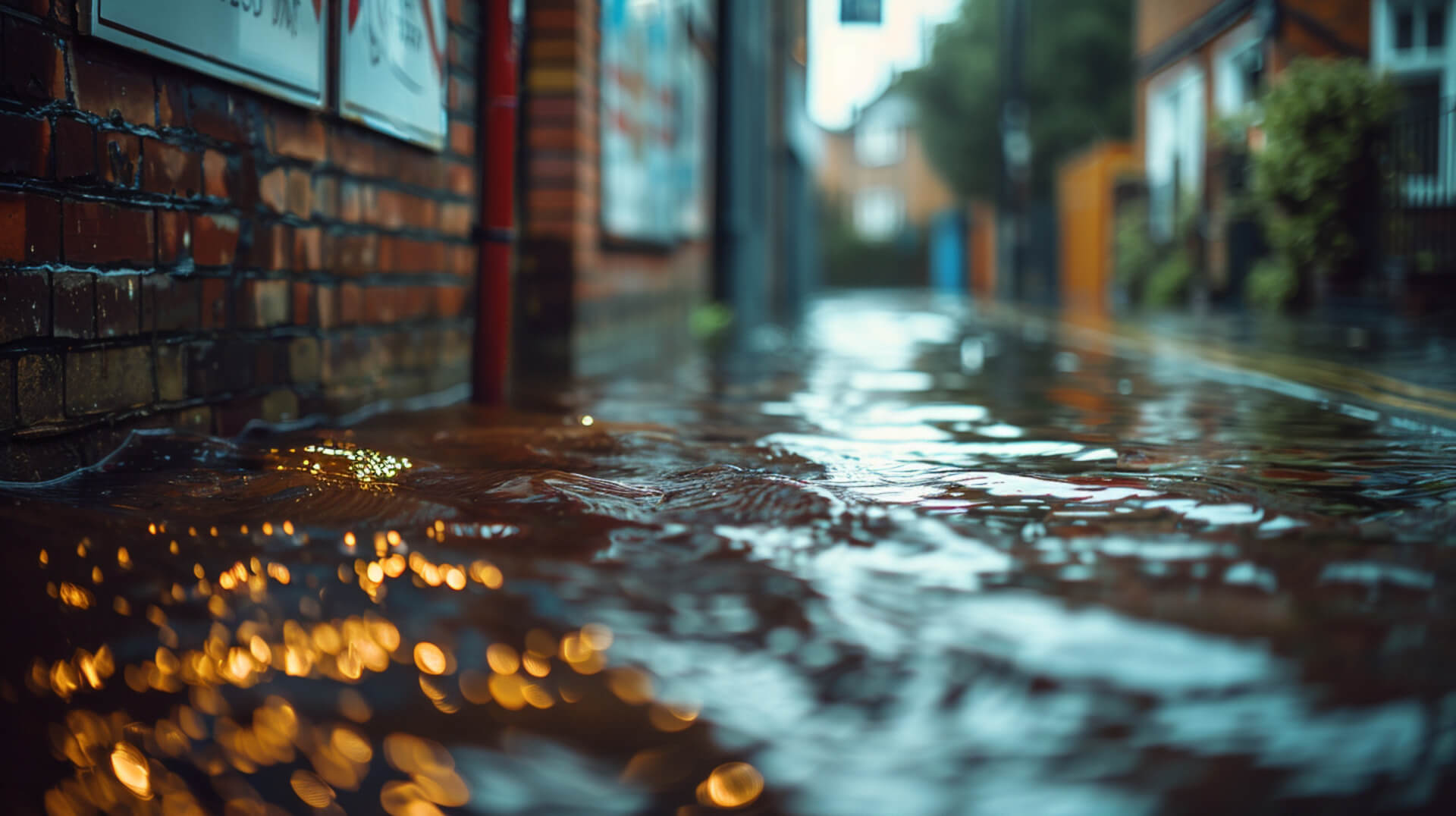
Neglected drainage systems can pose significant health risks to occupants of a property. Understanding these risks is crucial for maintaining a safe living or working environment.
Exposure to Sewer Gases and Health Effects
When drains are blocked, sewer gases may back up into the property. These gases, which can include methane, hydrogen sulphide, and ammonia, can lead to headaches, dizziness, respiratory problems, and even asphyxiation in high concentrations.
Proliferation of Bacteria and Waterborne Illnesses
Stagnant water in clogged drains can become a breeding ground for bacteria, leading to waterborne illnesses. Pathogens such as E. coli and Salmonella can thrive in these conditions, increasing the risk of gastrointestinal diseases and infections.
Importance of Prompt Drainage Issue Resolution
Addressing drainage issues promptly is not only a matter of convenience but also a critical health and safety practice. Quick intervention can prevent the escalation of health hazards and ensure that the living or working environment remains safe for all occupants.
Environmental Considerations in Drain Maintenance
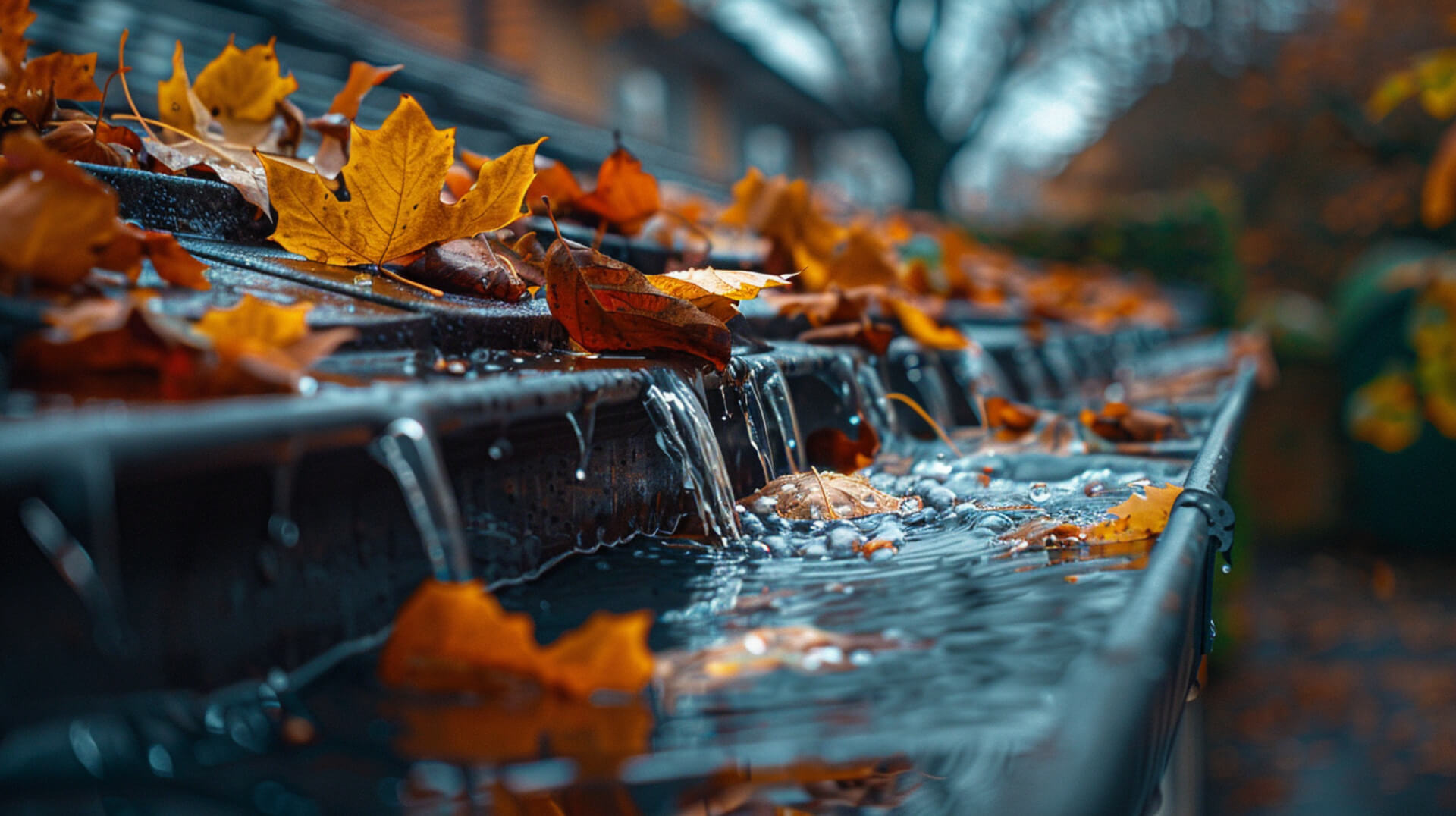
Proper drain maintenance is not only crucial for the functionality of a property’s plumbing system but also plays a significant role in environmental protection. Understanding the environmental implications of drainage practices is essential for property managers.
The Role of Drain Maintenance in Environmental Safety
Maintaining a clean and unobstructed drainage system ensures that waste is disposed of correctly, preventing harmful contaminants from entering the natural environment. This practice is vital for the preservation of local waterways and ecosystems.
Risks of Chemical and Waste Mismanagement
The use of harsh chemicals in drain cleaning can lead to environmental degradation if not managed properly. These substances can seep into soil and water sources, posing risks to wildlife and plant life. Additionally, improper disposal of waste can contribute to pollution and disrupt the balance of local habitats.
Tree Root Intrusion: A Dual Threat
Tree root intrusion into drainage systems can cause significant structural damage and blockages. Moreover, it poses a threat to the health of the trees themselves and the surrounding flora. Addressing these intrusions requires careful consideration to maintain both the integrity of the plumbing system and the environment.
Ensuring Compliance with Environmental Standards
Property managers have a responsibility to adhere to environmental regulations when maintaining drainage systems. This includes selecting environmentally friendly cleaning methods and staying informed about best practices for waste disposal and chemical use. Compliance not only protects the environment but also ensures the safety and sustainability of the property’s infrastructure.
Causes of Drain Blockages and How to Identify Them
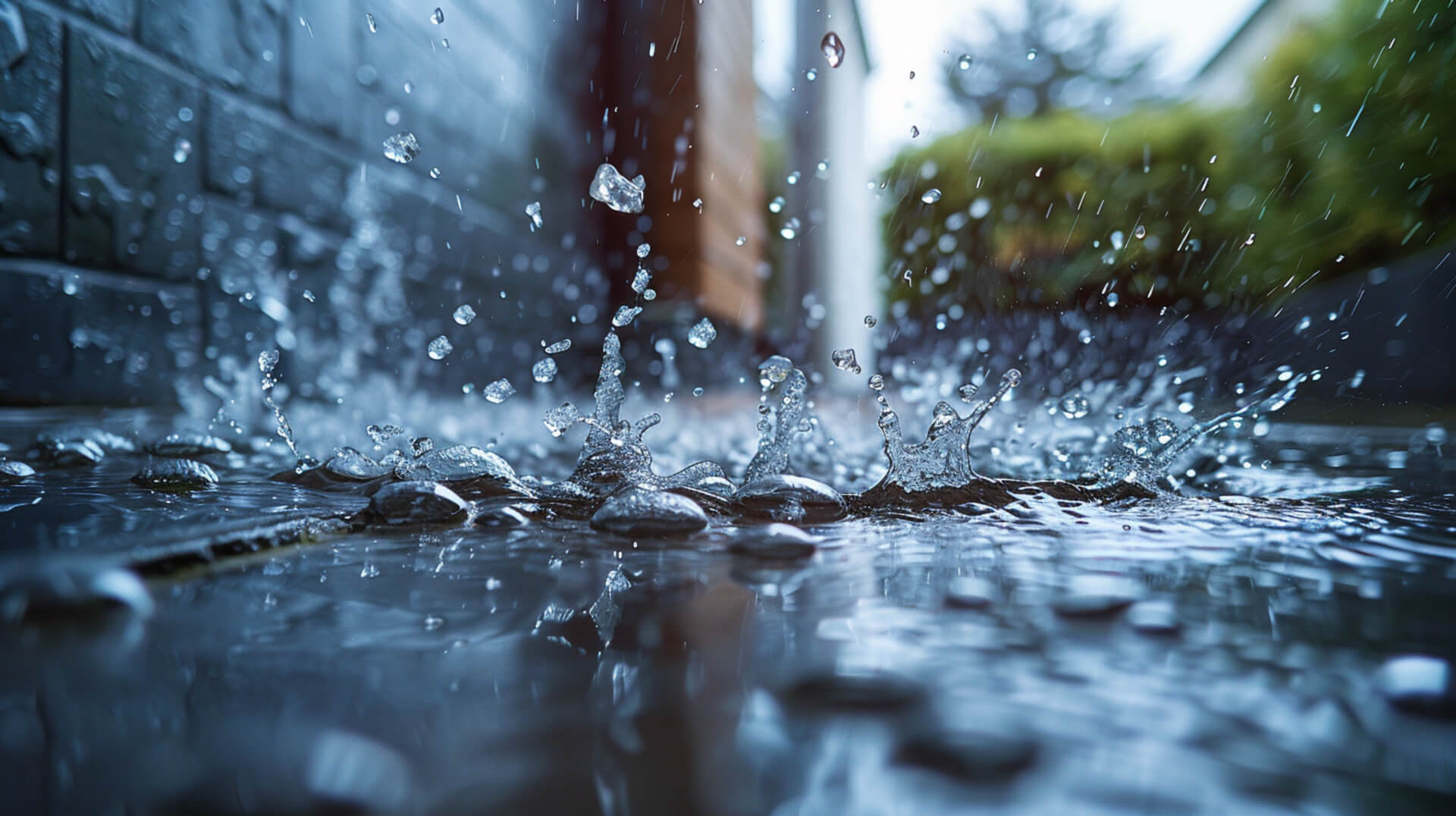
Understanding what causes drain blockages is key to preventing them and choosing the right solution when they occur. Common household items and external factors can both contribute to these issues.
Common Household Items Leading to Blockages
Everyday materials can accumulate in your pipes and lead to blockages:
- Grease and Oils: Often washed down kitchen sinks, these can solidify and cause clogs.
- Soap Scum: Accumulates over time from bathing and laundry, narrowing pipes.
- Hair: Common in bathroom drains, hair binds with other materials, creating blockages.
- Food Particles: Even with garbage disposals, some food waste can cause blockages.
External Factors Affecting Drainage
External elements can also impede your drainage system:
- Tree Roots: Seeking moisture, they can infiltrate and obstruct pipes.
- Mineral Build-Up: In areas with hard water, minerals can deposit and reduce flow.
The Importance of Identifying Blockage Causes
Knowing the cause of a blockage informs the approach to clearing it. For instance, chemical cleaners may dissolve grease but won’t remove tree roots. Understanding the source of the problem ensures that you apply the most effective solution, saving time and resources.
By being aware of what commonly causes blockages and recognising the signs, you can take proactive steps to maintain your drainage system and avoid the inconvenience and potential damage caused by clogged pipes.
The Debate: DIY Solutions vs. Professional Drain Cleaning
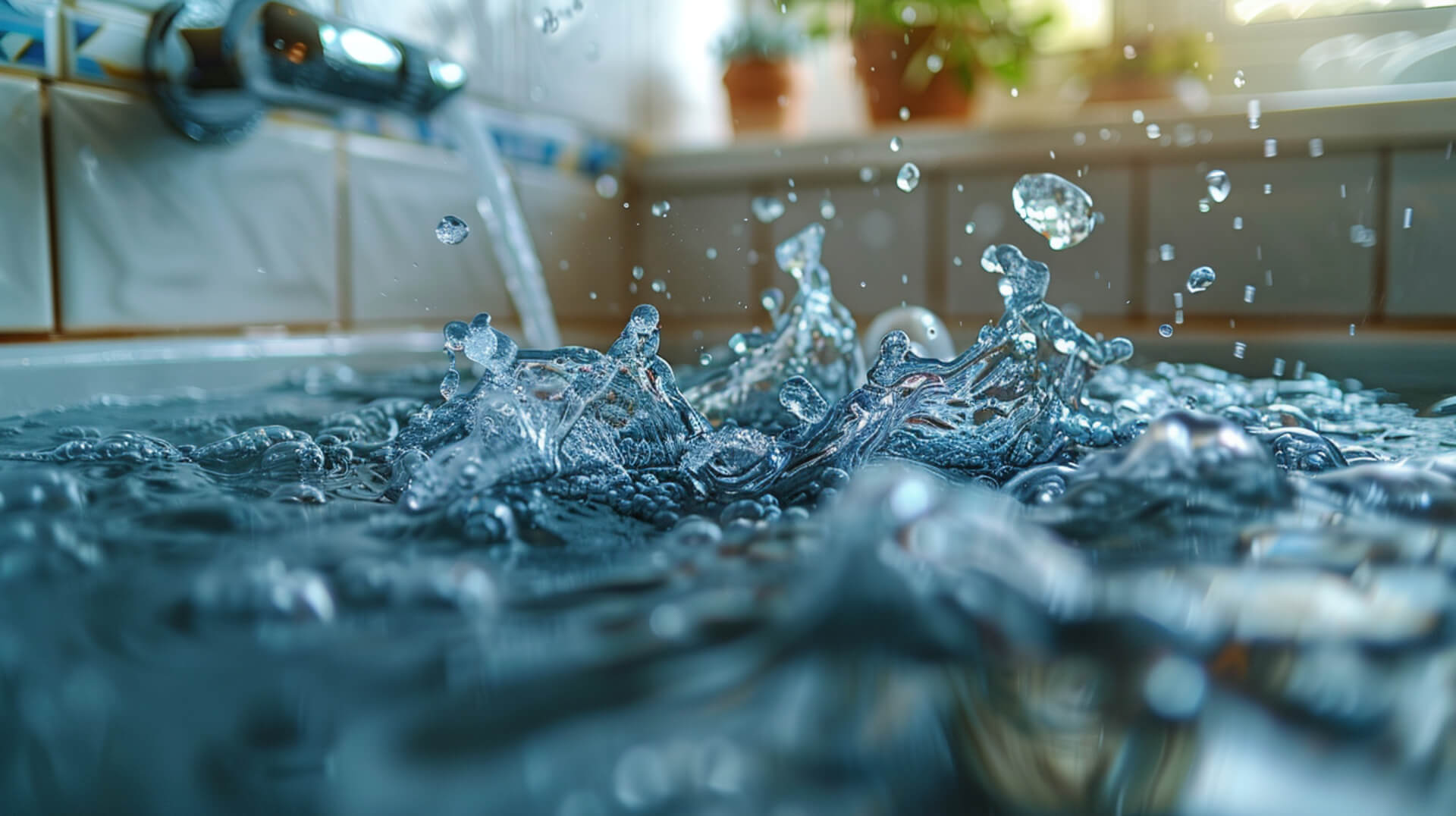
When faced with drainage issues, the decision between attempting a do-it-yourself solution or calling in professional services is critical. Each option has its own set of limitations and advantages that should be carefully considered.
Limitations of DIY Drain Cleaning Methods
DIY methods can offer a quick fix but may fall short in several ways:
- Effectiveness: Home remedies might not clear stubborn blockages or could provide only temporary relief.
- Safety: Chemical drain cleaners available to consumers can be hazardous to health and may damage plumbing over time.
- Diagnostic Capability: Without professional tools, it’s challenging to diagnose the underlying cause of a blockage.
When to Seek Professional Drain Cleaning Services
Professional intervention is advisable when:
- Recurring Issues: Persistent problems indicate a deeper issue that DIY methods cannot resolve.
- Severe Blockages: If home remedies fail to clear a blockage, professionals have the tools to address it effectively.
- Safety Concerns: To avoid the risks associated with chemical cleaners, professionals can offer safer alternatives.
Advantages of Professional Services
Professional drain cleaning services provide:
- Comprehensive Solutions: They can address the root cause of blockages for long-term resolution.
- Specialised Equipment: Tools like hydro-jetting machines and CCTV for inspections are not typically available to homeowners.
- Expertise: Trained technicians can safely and efficiently handle complex plumbing issues.
In situations where the blockage is severe or recurrent, the expertise and equipment that professional services offer can be invaluable, ensuring the safety and longevity of your property’s drainage system.
Benefits of Opting for Professional Drain Cleaning Services
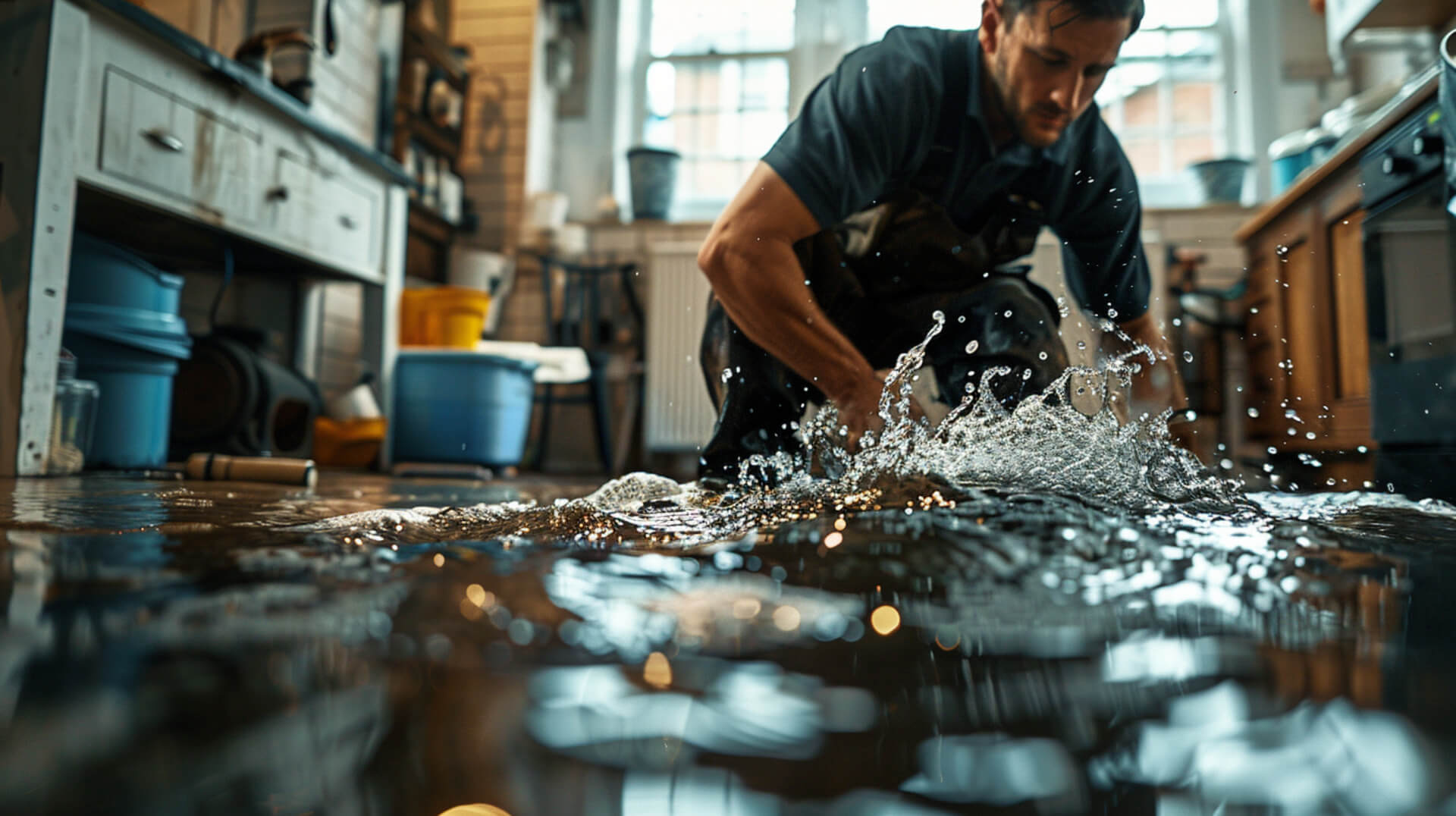
Professional drain cleaning services offer comprehensive solutions that go beyond the temporary fixes of DIY methods. These services can provide long-term benefits to your property’s drainage system.
Long-Term Solutions Offered by Professional Services
Professionals use advanced techniques like hydro jetting and CCTV inspections to not only clear blockages but also to diagnose and rectify the root causes of drainage problems. This proactive approach can prevent future issues, offering a long-term solution to drainage maintenance.
Compliance with Health and Safety Standards
Professional drain cleaners adhere to strict health and safety regulations, ensuring that all procedures are carried out safely and effectively. This compliance protects you from potential health risks associated with exposure to sewer gases and bacteria-laden water.
Extending System Longevity Through Professional Cleaning
Regular professional cleaning can significantly extend the life of your drainage system. By removing build-ups and obstructions, professionals can prevent the corrosion and wear that often lead to leaks and other costly damages.
Cost-Effectiveness of Professional Drain Cleaning
While there is an upfront cost to professional drain cleaning services, they can be more cost-effective in the long run. By addressing issues thoroughly and preventing future problems, professional cleaning can save you money on emergency repairs and reduce the need for frequent maintenance.
Understanding Drain Cleaning Methods
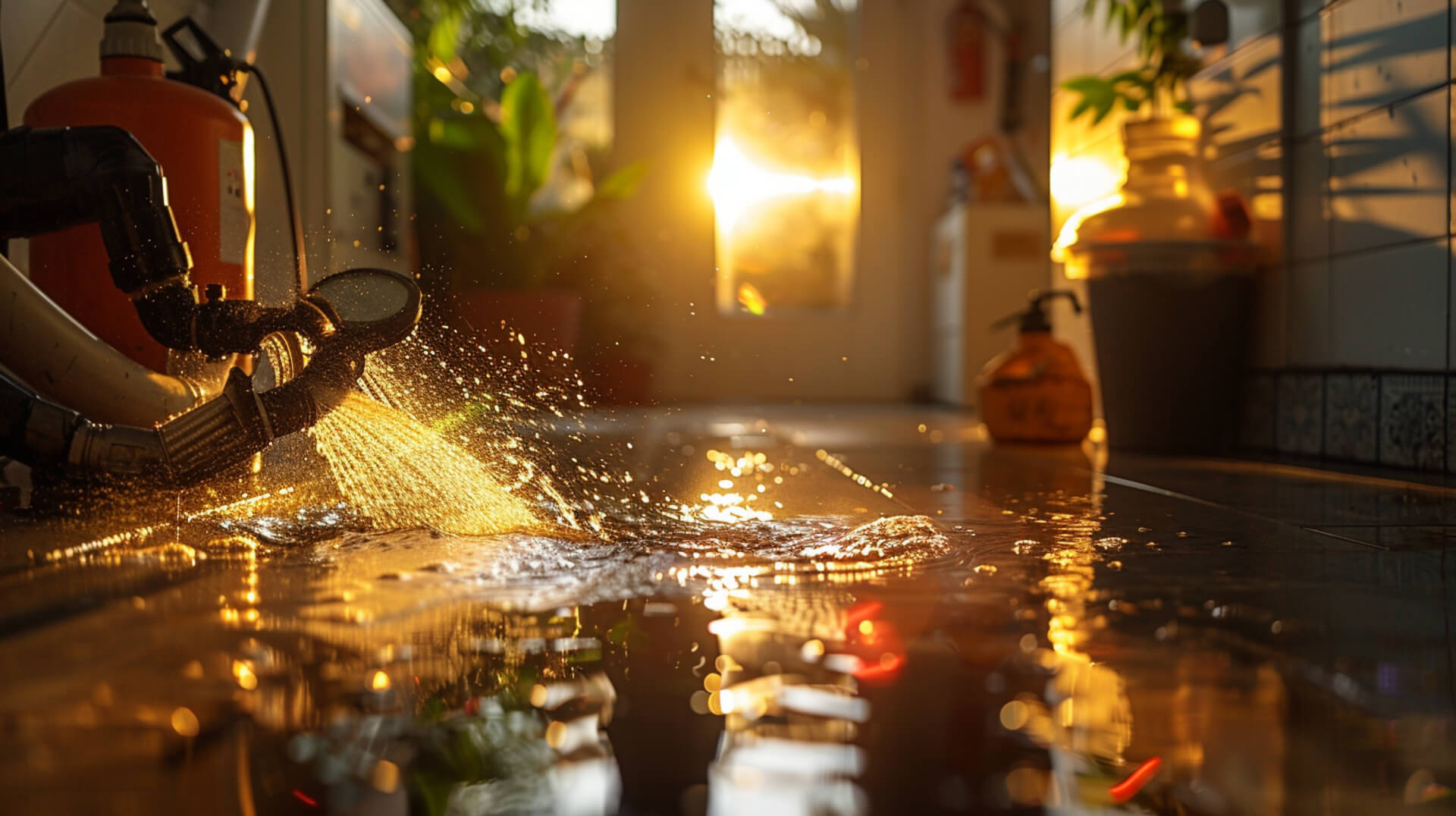
When it comes to maintaining the drainage system, various cleaning methods are available, each with its own set of advantages and applications. It is important for property owners to understand these methods to make informed decisions about drain maintenance.
Differences Between Cleaning Methods
Drain cleaning methods can be categorised into three main types:
- Chemical Cleaners: These involve the use of chemical solutions to dissolve blockages. They are readily available but may not be suitable for all types of pipes due to the potential for corrosion.
- Mechanical Methods: Tools like plumbers’ snakes or augers physically remove blockages. This method is effective for dislodging debris but may require professional handling to avoid pipe damage.
- Natural Solutions: Mixtures like baking soda and vinegar can provide a non-toxic alternative to chemicals, though they may be less effective on severe blockages.
The Process and Application of Hydro Jetting
Hydro jetting is a mechanical method that uses high-pressure water streams to clear blockages and clean pipes:
- Effective for: Stubborn blockages and build-up, including grease and mineral deposits.
- Recommended when: Other methods fail or as a preventative maintenance measure to thoroughly clean pipes.
Choosing the Appropriate Cleaning Method
Professionals assess the situation based on several factors to choose the most suitable cleaning method:
- Type of Blockage: Organic material, grease, or tree roots each require different approaches.
- Pipe Material: Some pipes may be damaged by certain chemical or mechanical methods.
- Severity of Clog: Heavier blockages may necessitate more powerful solutions like hydro jetting.
By understanding the nuances of each method, professionals can select the most effective and safe approach for cleaning your drains, ensuring the longevity and health of your plumbing system.
Cost Considerations in Drain Cleaning
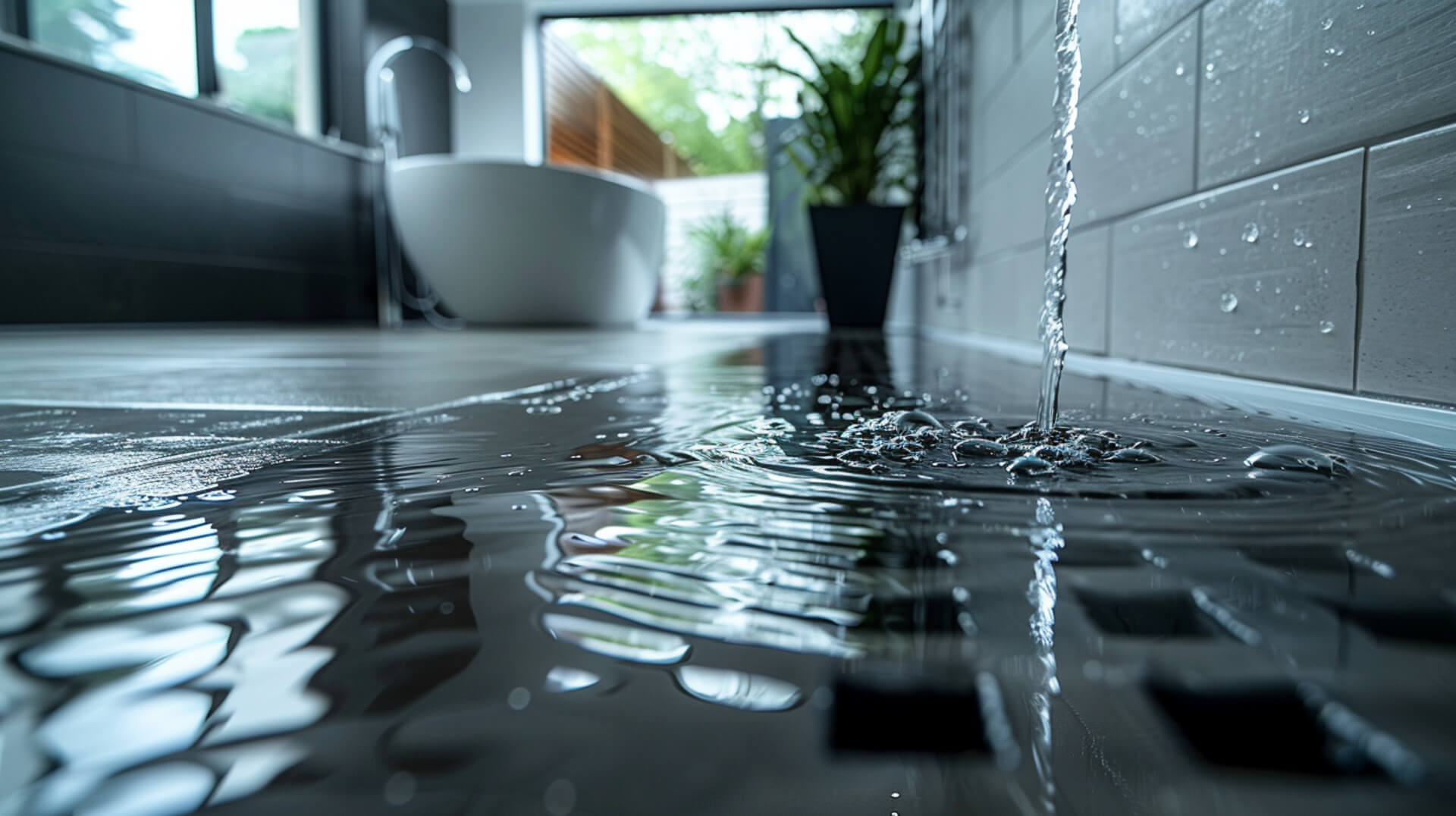
Evaluating the cost of drain cleaning services involves understanding various factors that can affect the overall expense. Property owners should consider these elements when budgeting for maintenance and emergency services.
Factors Influencing Drain Cleaning Service Costs
Several aspects determine the cost of drain cleaning:
- Severity of Blockage: Minor clogs typically cost less to resolve than severe obstructions.
- Location of Blockage: Hard-to-reach areas may require more labour or specialised equipment, increasing the cost.
- Tools and Supplies: The use of advanced tools like hydro-jetting machines or CCTV for inspections can affect pricing.
- Professional Service Fees: Rates vary by provider and may depend on the complexity of the job and the reputation of the service.
Budgeting for Regular Maintenance and Emergency Services
To effectively budget for drain maintenance:
- Regular Inspections: Schedule periodic checks to catch issues early, potentially reducing costs.
- Emergency Fund: Set aside resources for unexpected repairs to avoid financial strain.
Preventative Maintenance vs. Emergency Repairs
Preventative maintenance is generally more cost-effective than emergency repairs because:
- Proactive Approach: Regular cleaning can prevent major blockages and the need for more expensive interventions.
- Avoiding Damage: Preventing clogs can also protect against pipe damage, which can be costly to repair.
Property managers should weigh the cost-benefit analysis of different cleaning methods to make informed decisions that balance financial considerations with the need for effective maintenance.
Preventative Measures to Avoid Future Blockages
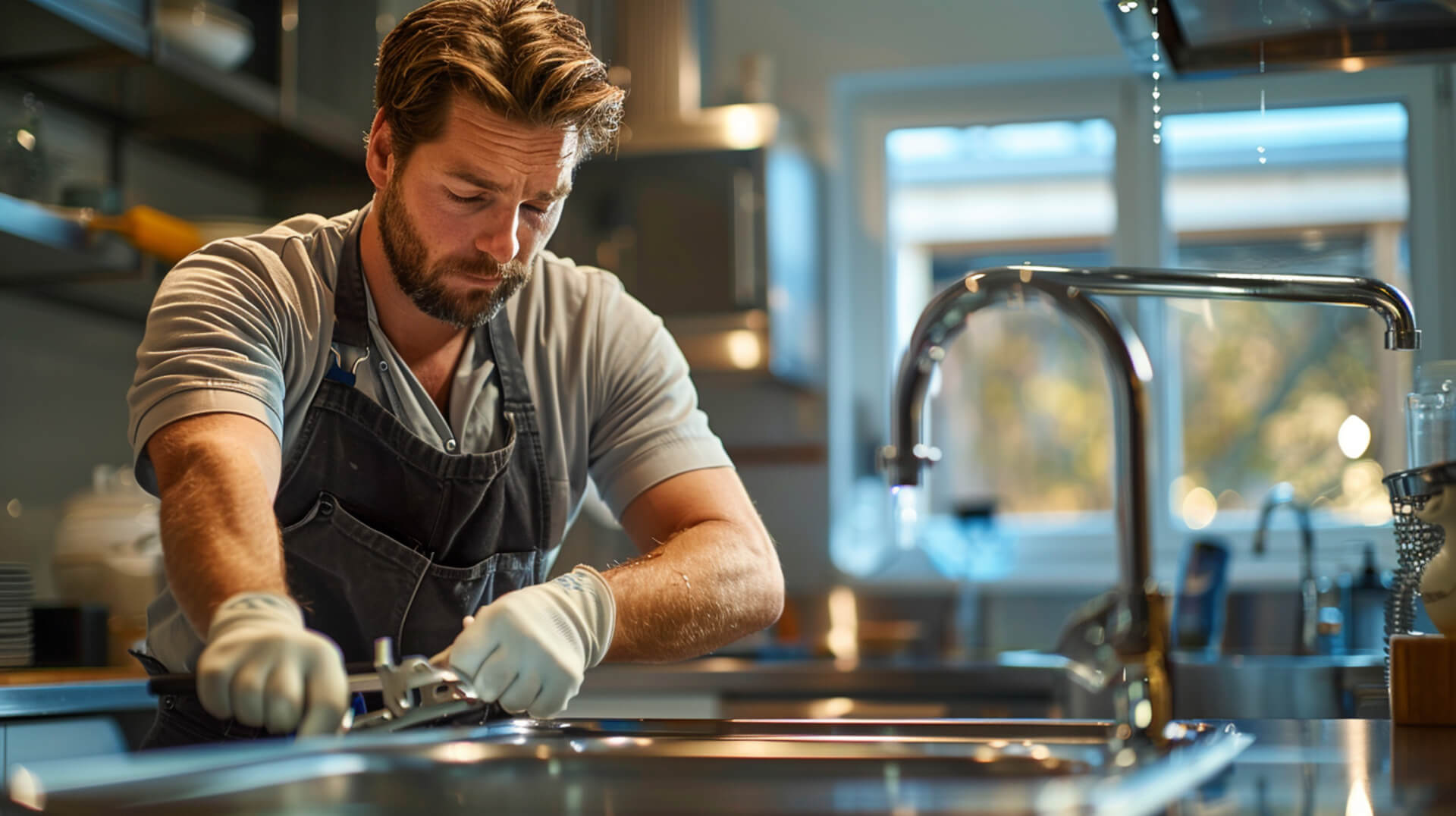
Implementing daily practices and regular inspections can significantly reduce the likelihood of drain blockages. By understanding what causes blockages and how they can be prevented, property owners can maintain a functional drainage system.
Daily Practices for Drainage Health
To prevent blockages, consider the following daily practices:
- Dispose of Grease Properly: Instead of pouring grease down the drain, dispose of it in the trash.
- Use Sink Strainers: Catch food particles and hair before they enter the drainage system.
- Run Hot Water: After each use, run hot water through the sink to help clear away any new buildup.
Regular Drainage System Inspections
Regular inspections are crucial for early detection of potential issues:
- Frequency: Inspect your drainage system at least once a year, or more often if you have experienced previous blockages.
- Professional Assessments: A professional plumber can provide a comprehensive evaluation and identify issues that may not be apparent to the untrained eye.
Importance of Proper Disposal Habits
Certain materials can cause significant blockages:
- Non-Biodegradable Items: Avoid flushing items like wipes, cotton swabs, and feminine hygiene products.
- Hazardous Chemicals: Do not dispose of chemicals that can damage pipes or harm the environment.
Role of Professional Assessments in Preventative Maintenance
Professional assessments play a vital role in maintaining a healthy drainage system:
- Expertise: Plumbers have the knowledge to recommend the best maintenance practices for your specific system.
- Equipment: They have access to specialised tools for thorough inspections and cleaning.
By adhering to these preventative measures and seeking professional guidance, you can maintain an efficient drainage system and avoid the inconvenience and expense of unexpected blockages.
Technological Advancements in Drain Cleaning and Maintenance
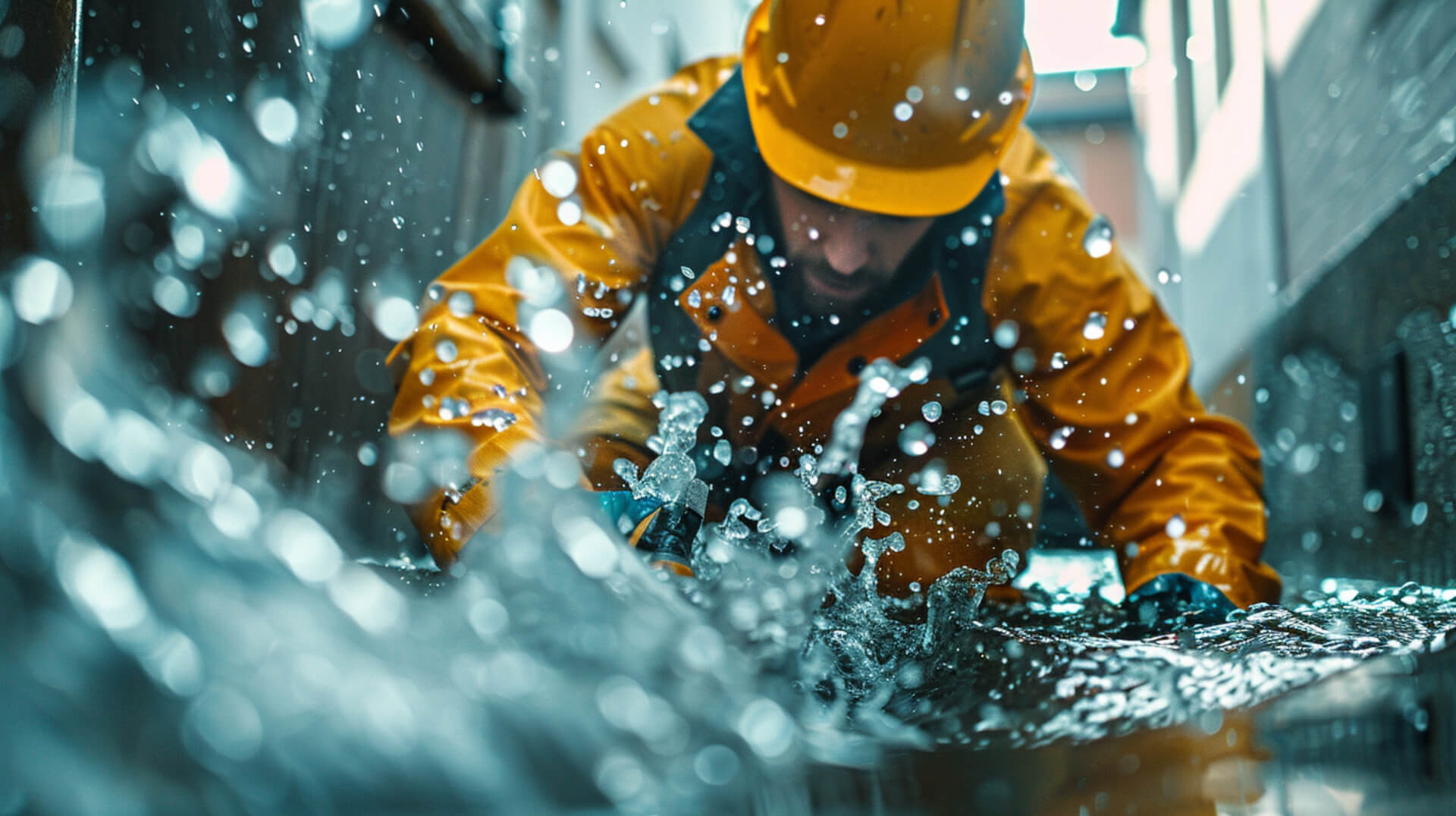
The field of drain cleaning has seen significant technological advancements that have transformed traditional methods, making maintenance more efficient and less invasive.
The Impact of CCTV Diagnostics on Drain Cleaning
Closed-circuit television (CCTV) diagnostics have revolutionised the way professionals approach drain cleaning. By inserting a camera into the drainage system, technicians can visually inspect pipes and identify blockages without excavation or guesswork. This non-invasive method allows for accurate diagnosis and targeted cleaning, saving time and reducing the risk of damage to the property.
Efficiency of Hydro-Jetting in Drain Maintenance
Hydro-jetting is a method that uses high-pressure water streams to remove blockages and clean the interior of plumbing pipes. This technique is highly efficient at clearing grease, sludge, and other debris, and it is powerful enough to cut through tree roots. Hydro-jetting not only cleans but also improves the overall condition of the pipes, which can prevent future blockages.
Technological Solutions to Root Intrusion
Advancements in technology have led to effective solutions for managing root intrusion in drainage systems. Techniques such as root cutting with specialised equipment and the use of root inhibitors can address the issue without harming the trees or the environment.
The Importance of Staying Informed on New Technologies
For property managers, staying updated on the latest technologies in drain maintenance is crucial. These advancements can lead to more effective, economical, and environmentally friendly maintenance practices. By leveraging these technologies, property managers can ensure the longevity and reliability of their drainage systems.
Timely Intervention in Drainage System Maintenance
Timely intervention is paramount in preventing the escalation of drainage issues into more significant problems. Recognising the early signs of blockages and taking immediate action can mitigate the risk of extensive property damage and health hazards.
The Role of Regular Maintenance
Regular maintenance of drainage systems is essential for:
- Preventing Blockages: Routine checks can identify and address minor issues before they become major blockages.
- Ensuring Safety: Clean and clear drains reduce the risk of health issues related to stagnant water and sewer gas exposure.
- Protecting the Environment: Properly maintained drainage systems prevent harmful pollutants from contaminating local ecosystems.
Steps for Maintaining Drainage Systems
Property owners are encouraged to:
- Conduct Regular Inspections: Schedule professional inspections to assess the condition of your drains.
- Implement Preventative Measures: Use strainers, dispose of waste properly, and avoid pouring grease down the drain.
- Seek Professional Advice: Consult with experts for tailored maintenance strategies that suit your property’s specific needs.
Understanding Signs and Solutions
For property managers, a comprehensive understanding of both the signs of drainage problems and the available solutions is crucial. This knowledge enables informed decision-making regarding maintenance and interventions, ensuring the longevity and efficiency of the drainage system.
